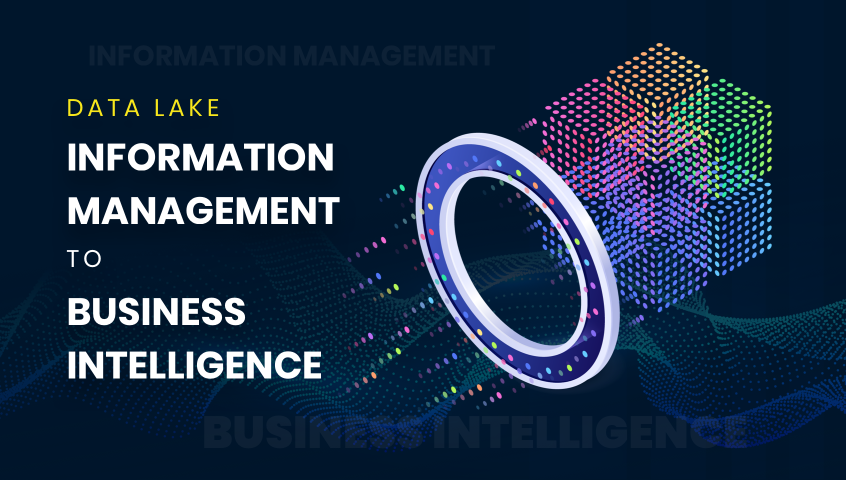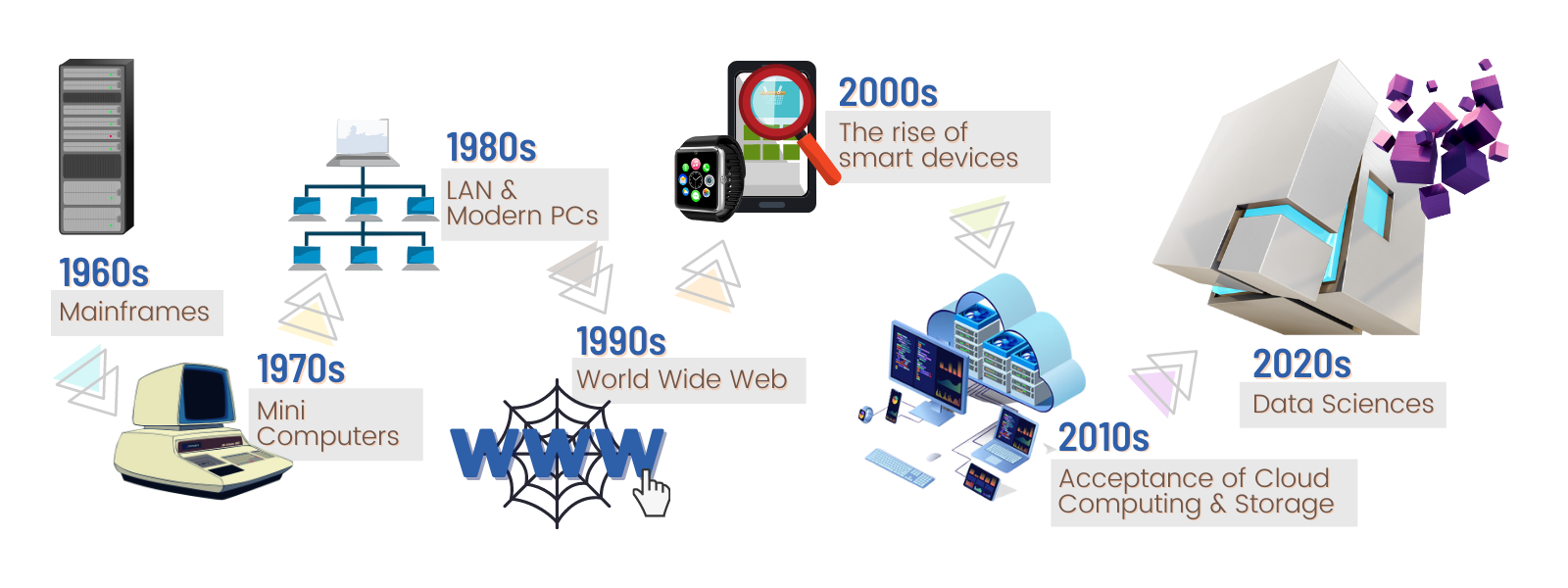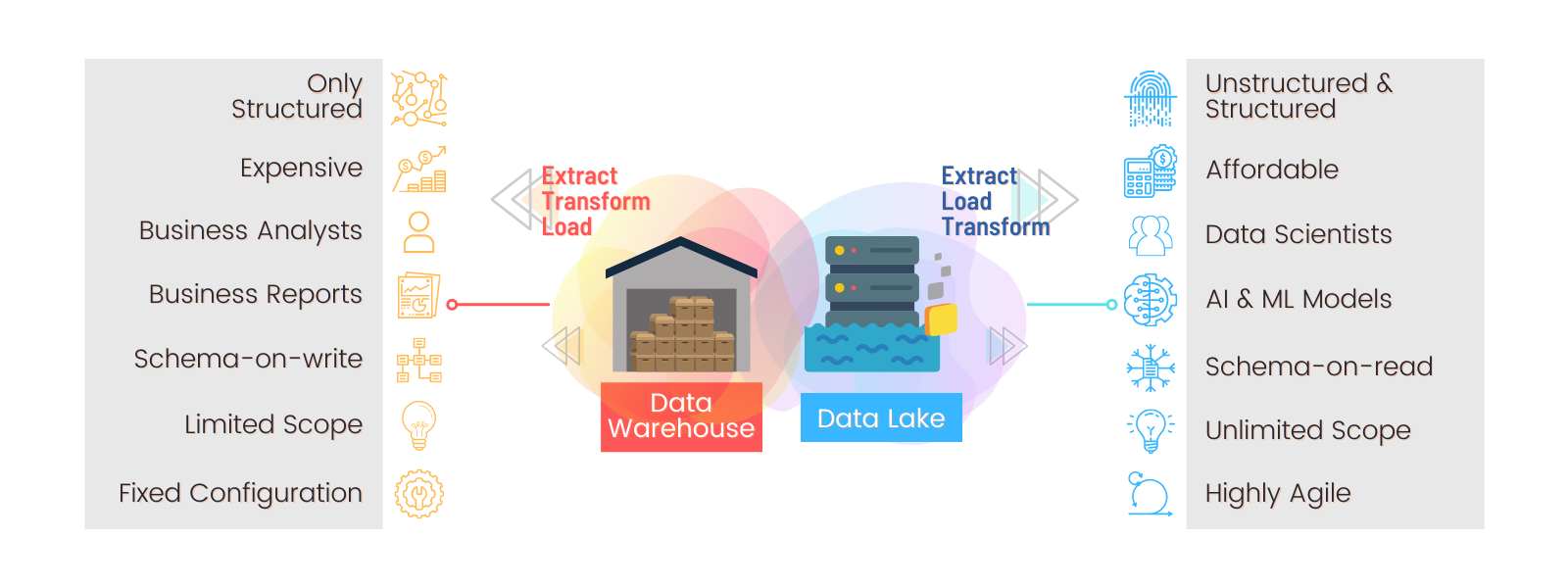
"Can Data Lake investments illuminate the future of digital businesses? Are Data Lake investments the much-needed strategic move towards actionable Business Intelligence? Read till the end of the article and decide for yourself."
If your business has survived 2020 without becoming a victim of pandemic-driven economic fallout, displayed good resilience, and your digital delivery is still thriving; that indicates your IT leaders have done some really good job being prepared for the unknown. Their business tech investments (the ideas that were most likely considered ‘unnecessary’ or ‘too early’ when first proposed in a board meeting) probably have saved the business from being disrupted. A lot of seasoned practitioners, business analysts, and tech scientists are insisting that chief executives of businesses should already start preparing for the post-crisis growth plans. Because whatever we were prepared for doesn’t cut it anymore. Before we jump into what does Data Lake investments have to do with this post-crisis response, let us quickly go over the Transformative technology adoptions that enabled the businesses to offer their customers what they need before they even realize that they need it.

Estimating the power of ‘new’ helped Yell digitize their records and stay in business even after Yellow Pages have gone extinct. Not realizing ‘what’s coming ahead’ costed a few publishing giants their very existence with Amazon’s arrival. The new imperative is getting onboard with the Data wagon. Every new move for a global enterprise is costly. Investing money and resources without right information is way too risky. If you think Data Lake investments are only in the purview of large enterprises like Google and Facebook, you are wrong. Every business that is operating digitally, have decisions to take based on what happened earlier and wish to estimate what might happen after a particular move – need to think about data lake investments.
For modern digital businesses, Data comes in all shapes and sizes.
Although data literacy has improved significantly in the last few years, and businesses have started taking advantage of enterprise data warehouses; there is still humongous potential hidden behind the unexplored side of Data sciences. New schemas and algorithms are being discovered by the data scientists and the business who start data lake investments earlier than others are sitting on a gold mine. Because the current Data and Analytics (D&A) practices are doing a decent job of Information Management and Performance Tracking but investing in Data lakes can open doors to actionable Business Intelligence.
What is Data Lake? And is it different from Data Warehouse?
On a broader sense, both are data repositories. The key difference is Data Warehouse is optimized data collected from transactional systems or applications for specific (and often pre-defined) queries or analysis. It is structured, cleansed and transformed data. On the other hand, Data Lake shelters both relational and non-relational data from various sources - not necessarily curated for any specific cause at the moment it is captured. Data Lake offers wide range of opportunities to study the data since it is raw, unstructured, and offers great elasticity to scale.

How can Data Lake Investments help your business?
Every CIO wants their efforts to drive the business as a data-driven organization so naturally, Big Data is a trending topic among tech leaders now a days. Thanks to the new advancements around cloud computing, IoT and APIs, there are massive amounts of data and all the amazing data analytics stories we hear every day are just tip of the iceberg. Data scientists are saying that conditioned data might be handy for now but if you don’t store data, in its original raw form, you are confining its potential. Here’s why Data Lake is the future.
Establishes Centralized Repository – The traditional/current enterprise data repositories are limited in terms of the variety, velocity, and source of data they gather. Data Lakes trims down the data silos, encourages variety, collects data from wide range of sources (irrespective of cloud, on-premise, or hybrid) and stores the information in its original form, keeping the authenticity of the data amazingly high.
Enables agile BI – As Data Lakes collects information as real-time as possible, employing right BI queries can cater to the ever-changing business insight needs for effective decision making. Data Lake focuses on predictive analysis based on pattern studies unlike the other data consolidation mechanisms whose capabilities are limited to reporting and historic analysis. Data Lake’s potential doubles up when you pair it up with advanced AI technologies.
Cost-effective – One will have to transform the data before loading it to a Data Warehouse. But Data Lake accepts and embraces any volumes of data in its own original form. We’ll only have to apply queries for a business insight when needed. Also, Data lakes offer extreme elasticity for hassle free scaling. It’s accelerated innovation at lesser expenditure. Woot made some serious Data Lake investments, built a serverless Data Lake with the help of AWS and witnessed their operational costs dramatically falling by over 90%.
Empowers Insight-driven decision-makingculture – There are organizations who are still struggling to enforce data-led decision making due to lack of reliable data prediction reports. With the recent PoCs and experiments, Data Lake seems to offer a new ray of hope.
How to get started with Data Lake Investments?
Nearly every leading Cloud provider is offering Data Lake solutions for big data analytics. Before you sign up for an enterprise data lake investment, you get to chose whether you want to go for a centralized data lake or a federated one, on Cloud or on Premise.
First, assemble a team of experts or find yourself a Data Transformation partner who has experience assisting businesses with their transformation initiatives. Just like most of the other Enterprise Data Management solution, Data Lake implementation is also divided into 4 phases. They are:

Remember!
- Although it has been around for few years, the concept of Data Lake is still relatively new. It will need attention and dedicated force to grow and reap benefits.
- Data Lake isn’t an off-the-rack solution, you gotta build it. Whether you go with AWS, Hadoop, Azure, or any other platform, all they give you is a podium to build your data lake. As Gartner says, ‘It is a concept to adopt, not a technology to own’.
- Your Data Lake is only as good as your Data ingestion practices. Data Warehouses would analyze the given structured data within the boundaries of pre-set schema. But Data Lakes doesn’t need a schema beforehand. They need data - lots and lots of raw data.
- The anticipated business value doesn’t come directly from your Data Lake investments and the underlying technologies, it comes from the data science skills of your team.
- Data Lake can’t takeover the entire data storage and analytical duty right from day one. It is meant to complement the existing setup and accelerate their efforts. Build your Organizational Data Solution by combining the right amounts of Data Hub, Data Warehouse and Data Lake solutions based on your business needs.
- Involve multiple facets of the business and improve data literacy in your organization. Data Lake is not just a responsibility of IT leaders, and it can’t be implemented in isolation.
Every successful digital business is the one who did the right business tech investment before their counterparts, learned from it, and nurtured it well. Data Lake is one such investment which is simple yet promises powerful business values as it ages.
Would you like to ponder around the idea of Data Lakes before taking a call? Get in touch with us and we’ll connect you to our team of experts who love listening to business challenges and suggest sustainable and scalable solutions. info@qentelli.com

